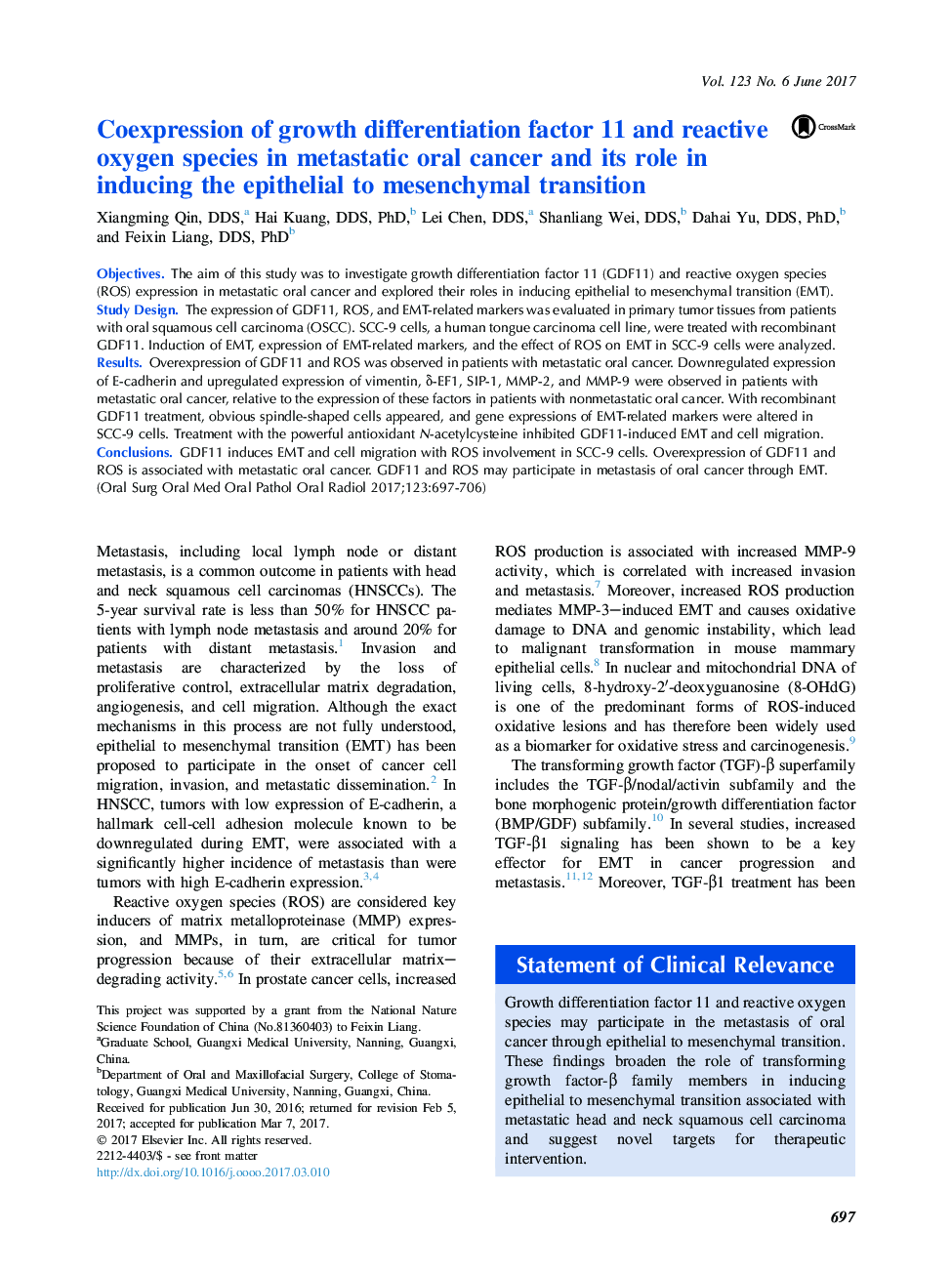| Article ID | Journal | Published Year | Pages | File Type |
|---|---|---|---|---|
| 5642776 | Oral Surgery, Oral Medicine, Oral Pathology and Oral Radiology | 2017 | 10 Pages |
ObjectivesThe aim of this study was to investigate growth differentiation factor 11 (GDF11) and reactive oxygen species (ROS) expression in metastatic oral cancer and explored their roles in inducing epithelial to mesenchymal transition (EMT).Study DesignThe expression of GDF11, ROS, and EMT-related markers was evaluated in primary tumor tissues from patients with oral squamous cell carcinoma (OSCC). SCC-9 cells, a human tongue carcinoma cell line, were treated with recombinant GDF11. Induction of EMT, expression of EMT-related markers, and the effect of ROS on EMT in SCC-9 cells were analyzed.ResultsOverexpression of GDF11 and ROS was observed in patients with metastatic oral cancer. Downregulated expression of E-cadherin and upregulated expression of vimentin, δ-EF1, SIP-1, MMP-2, and MMP-9 were observed in patients with metastatic oral cancer, relative to the expression of these factors in patients with nonmetastatic oral cancer. With recombinant GDF11 treatment, obvious spindle-shaped cells appeared, and gene expressions of EMT-related markers were altered in SCC-9 cells. Treatment with the powerful antioxidant N-acetylcysteine inhibited GDF11-induced EMT and cell migration.ConclusionsGDF11 induces EMT and cell migration with ROS involvement in SCC-9 cells. Overexpression of GDF11 and ROS is associated with metastatic oral cancer. GDF11 and ROS may participate in metastasis of oral cancer through EMT.
